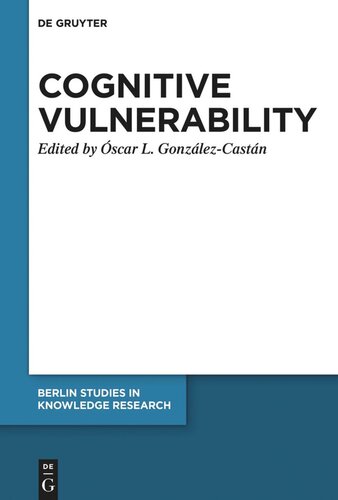

Most ebook files are in PDF format, so you can easily read them using various software such as Foxit Reader or directly on the Google Chrome browser.
Some ebook files are released by publishers in other formats such as .awz, .mobi, .epub, .fb2, etc. You may need to install specific software to read these formats on mobile/PC, such as Calibre.
Please read the tutorial at this link: https://ebookbell.com/faq
We offer FREE conversion to the popular formats you request; however, this may take some time. Therefore, right after payment, please email us, and we will try to provide the service as quickly as possible.
For some exceptional file formats or broken links (if any), please refrain from opening any disputes. Instead, email us first, and we will try to assist within a maximum of 6 hours.
EbookBell Team

4.7
46 reviewsVulnerability has become part of our everyday vocabulary. We are used to hearing that we ought to act so as to protect the highly vulnerable; the qualifier suggests that we are all vulnerable. In addition to being of contemporary relevance, the notion of vulnerability has also been at the heart of philosophical reflection since the birth of the discipline, playing a vital role across many different traditions. Its prevalence is unsurprising. Vulnerability, which partially defines us as human beings, has appeared in many guises: mortality, finitude, sin, ignorance, etc.
However, no attempt has yet been made to fully apply the notion of vulnerability to the domains of epistemology and the philosophy of science, to relate it to our general human vulnerability, and to explore the wide range of consequences that derive from it. The contributors of this book fill this gap; they present new approaches to classical problems. They highlight different aspects of our cognitive vulnerability, from issues related to the realism/antirealism debate to reflections on epistemic success and trust.